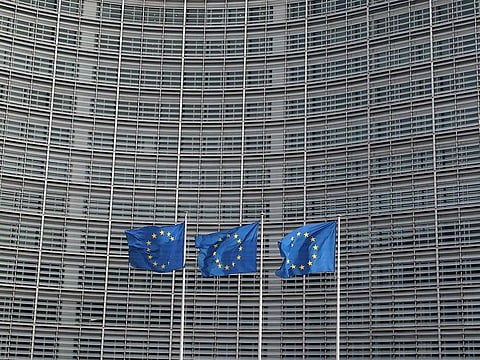The European Union is no match for the financial crime gangs
Gaping cracks in banking systems can’t be fixed overnight by anti-money laundering agency

Europe’s reputation on financial crime took another battering in 2019. Several of the region’s biggest lenders, including ABN Amro Bank NV and Swedbank AB, were tarred by allegations that they let criminals move around their cash unhindered, a reminder that Danske Bank A/S’s mammoth money-laundering failings weren’t isolated.
At least the scale of the problem isn’t going unnoticed. Politicians and bank executives have been spurred to action finally. But, as the Dutch finance minister Wopke Hoekstra said recently, anyone who thinks lenders and regulators are gaining the upper hand is in for a “rude awakening.”
A dangerous mix of fragmented supervision and weak oversight from watchdogs and bank boards has made Europe extremely vulnerable to dirty cash. Banks have focused too often on profit at the expense of vetting customers and transactions properly. Fixing these lapses will take a long time.
The European Union is responding at last, but its effectiveness in this fight remains questionable. Last month the bloc’s finance ministers endorsed a plan to create a regional agency to fight money laundering and terror financing. There are 58 authorities responsible currently for supervising this stuff in the EU and European Economic Area. No wonder bad practices have flourished in the cracks.
Much like the Single Supervisory Mechanism — the European Central Bank’s regulatory arm — the new EU watchdog will have direct authority over the continent’s lenders. As the Brussels think tank Bruegel points out, it won’t just police the biggest banks. It will look at smaller lenders too, which are more vulnerable to money launderers.
Yet Europe will still be hamstrung by a multitude of national laws and data requirements that will take years to harmonise. It won’t be easy to create a framework for the new EU agency to work with national prosecutors, police and financial intelligence units. And unless the new body is funded adequately it may be another blunt instrument. The best talent doesn’t tend to gravitate toward lower-paying regulatory roles and if the European Banking Authority’s experiences are instructive — that regulatory agency got an additional headcount of 10 to tackle money-laundering — the new supervisor will struggle to make much difference.
In the meantime, criminals are free to exploit all those gaps in regulatory oversight and banks’ internal controls. “We have only started to see the beginning” of the problem, Hoekstra said last month. It’s not a phenomenon linked to just a few banks in certain jurisdictions, he noted.
Blind spots clearly persist at the state level. For example, the Financial Action Task Force — a global intergovernmental body set up to fight money laundering and terror financing — found Denmark (though improving) to be fully compliant on just six of its 40 recommendations, and either largely or partially compliant on the remaining 34. Both Latvia and Estonia, the Baltic nations used as gateways for suspect funds from the former Soviet Union into Europe, are awaiting new evaluations of their anti-money laundering efforts.
As fintech companies multiply rapidly, providing another route for dirty cash, fixing these national failings is critical. As EU regulators noted in a joint report in October, some of these firms are seeking to set up in member states where local regulation is more lax.
And while banks — at least the bigger ones — have the resources to tackle crime, they don’t always do it well. Breaches in identifying customers and beneficial owners of corporate entities soared between 2016 and 2017, according to EU regulators.
It’s not as if the criminals are standing still. Brexit will separate Britain’s powerful financial hub from the EU, posing a significant challenge to the bloc’s supervisors. National authorities may not be equipped to monitor the growing number of finance firms that will be created to manage the split between the City of London and the rest of Europe.
The spread of virtual currencies will also test financial institutions. The FTAF if due to report to G20 finance ministers and central bank governors this year on how to apply its standards to digital currencies. This guidance is needed desperately: Germany, Europe’s biggest economy, has recently passed a bill enabling banks to hold cryptocurrencies on behalf of their customers — just as money laundering is growing among crypto assets. Elsewhere, Switzerland’s financial regulator FINMA has warned that the world’s leading private banking hub is “particularly exposed” to money laundering, with new threats emerging from blockchain and crypto technology.
Europe has for too long failed to plug the holes that make it a popular target for financial crime. It needs to up its game urgently.
Sign up for the Daily Briefing
Get the latest news and updates straight to your inbox



